- The first step to building a skincare routine is knowing what skin type you have so you can purchase products best suited to you.
- The three key steps to a skincare routine are to cleanse, moisturize and protect.
- There are a variety of add-ons you can also include in your skincare routine to target your specific skin concerns.
- When it comes to skincare, consistency is key. Be sure to practice this routine both morning and night everyday to see the best results.
The key to youthful glowing skin is to practice a solid skincare routine and be consistent with it. Skincare can be confusing and with so many products on the market, it can be overwhelming to decide which products are right for you.
If you’re looking to dip into the skincare world but aren’t sure where to begin, this guide outlines everything you need to know. From the order you should apply products, to determining your skin type, to extra add-on steps, follow along as we outline everything that should be included in your skincare routine.
Determine Skin Type
The first step in building a skincare routine is to determine your specific skin type. This can help you narrow down which products will benefit your skin and target your specific skin issues. The best way to determine your skin type is to pay attention to what your skin looks like a few hours after the shower and with no product applied to it. The main three skin types are dry, oily, and combination.
If your skin appears dry or flaky, you likely have dry skin. If your skin appears shiny or greasy, you likely have oily skin. If you have shine on just your forehead and nose but nowhere else, you may have combination skin. If you don’t notice any of these issues, you may be a part of the lucky group that has a normal skin type. When looking for products, be sure to look for these key words on the labels to ensure it will work well with your skin.
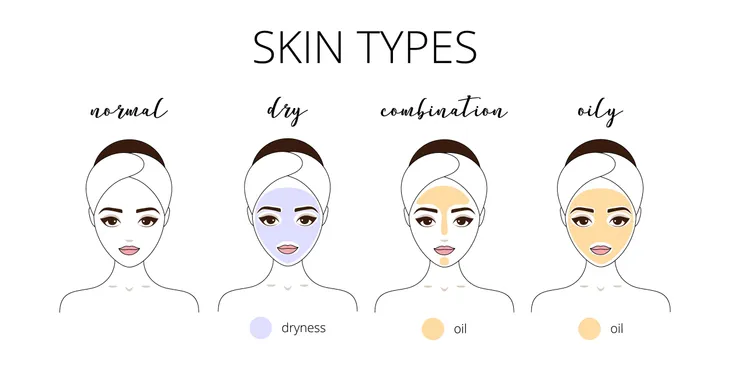 Shutterstock/reddish
Shutterstock/reddishBasic Skincare Essentials
There are three key steps when it comes to building a simple skincare routine: cleanse, moisturize, and protect, which we’ll dive deeper into. There are many additional steps you can add into your skincare routine to treat specific issues you may have, but these three steps should be at the core of your routine.
Always begin your skincare routine with cleansing the skin to remove any makeup, oil, or leftover debris on the skin. Next, moisturize the skin to add hydration back to the skin. Lastly, protect your skin from the sun with an SPF.
 Shutterstock/popcorner
Shutterstock/popcornerStep 1: Cleanse
The first step of a basic skincare routine is to cleanse. The general rule of thumb is to cleanse twice per day, once in the morning and once at night. When cleansing at night, it’s often recommended by skincare professionals to do a “double cleanse,” according to Healthline. This involves cleansing with an oil or cleansing balm first to breakdown stubborn makeup, then cleansing again with a gentle, hydrating cleanser afterwards to remove any excess build up on the skin.
Your morning cleanse, on the other hand, is a great way to remove any sweat, debris or oil left on your skin that may build up during your sleep. This cleanse can be a simple one step cleanse, followed your moisturizer, treatment and SPF, which will be outlined further.
 Shutterstock/Josep Suria
Shutterstock/Josep SuriaStep 2: Moisturize
The next key step in your skincare routine should be a moisturizer. While this may seem counterintuitive if you have oily skin, it’s still a step that cannot be skipped. VeryWellHealth explains that sometimes skin will become oily because it simply lacks hydration and is trying to overcompensate.
If you do have oily skin, just try to opt for an oil-free moisturizer which will be more lightweight and won’t add any extra shine to your skin. If you have dry skin, you may want to opt for a thicker, richer moisturizer formula. If you have normal skin, you may want to opt for a lighter moisturizer in the summer and thicker in the winter to cater to the seasonal changes.
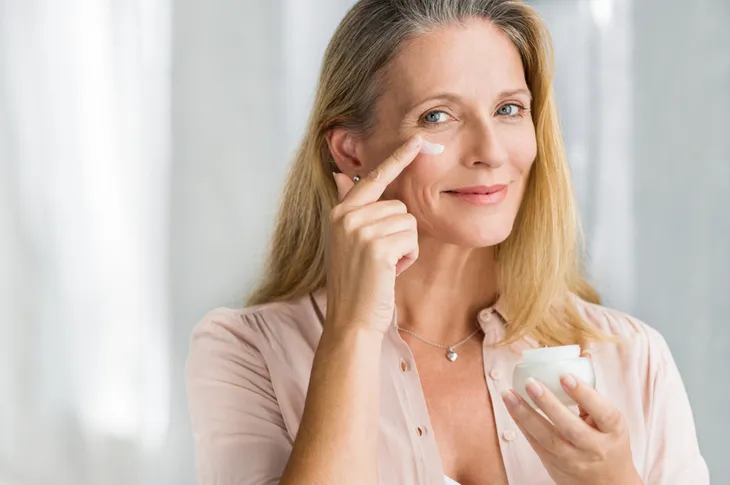 Shutterstock/Rido
Shutterstock/RidoStep 3: Protect
The last key step to an effective skincare routine is to protect your skin from the sun with SPF. Be sure to apply your sunscreen generously to both your face, neck and chest about 15 to 30-minutes before you go into the sun. The American Cancer Society recommends choosing a broad spectrum sunblock rated SPF 30 or higher that protects against UVA and UVB light.
SPF is so important to protect your skin from premature aging, hyperpigmentation, dark spots, and most importantly, skin cancer. Many makeup and moisturizing products contain SPF, but it’s always best to be extra cautious and layer a sunscreen underneath for double protection. It may take experimenting with a few different facial sunscreens to find which one works best for you.
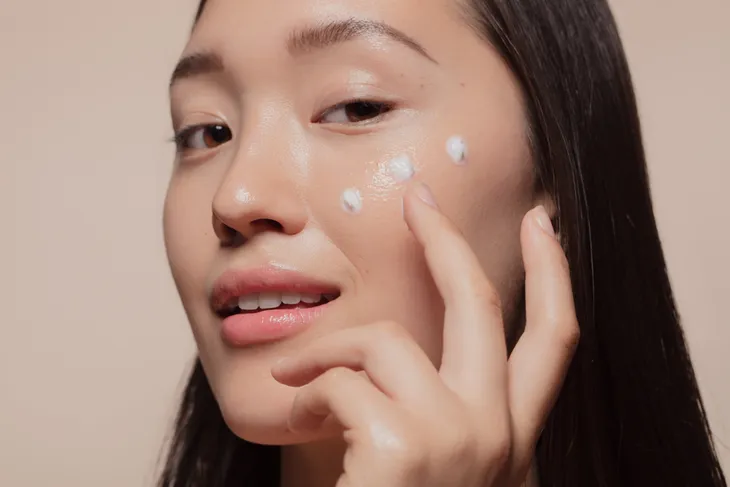 Shutterstock/Jacob Lund
Shutterstock/Jacob LundOptional Step: Treatment
Cleanse, moisturize, and protect are the key three steps to any beginner’s skincare routine, but there are many extra treatments you could also incorporate to treat specific issues. Treatments typically refer to serums or creams that often contain actives such as vitamin C, retinol, hyaluronic acid or alpha hydroxy acids, among others.
These treatment skincare products are what can really transform your skin, especially if you have any specific skin issues you’re hoping to remedy. Whether you’re looking for brightness, an anti-aging effect, smoothing out texture, treating acne, or adding a boost of hydration, there’s a skincare treatment product out there for you.
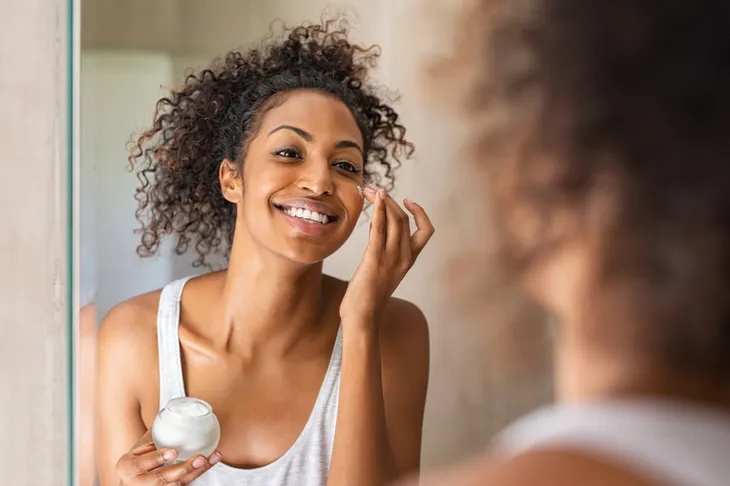 Shutterstock/Rido
Shutterstock/RidoAdd-On: Serum
When it comes to treatments, serum is a popular option that you can tailer to your skin needs. If you’re looking for a brightening or smoothing effect, you may want to try a vitamin C serum. This product is best used in the mornings and can help mitigate dark spots, reverse sun damage and brighten the skin.
Another great serum option is a hyaluronic acid. This product is gentle and works well layered with your moisturizer for an added boost of hydration and plumpness to the skin. As with any treatment product, we suggest testing the product on a small area of your skin to see how it reacts. It’s also always best to incorporate products slowly, starting with just once a week, to build up your skin’s tolerance to the product and resist any adverse reactions.
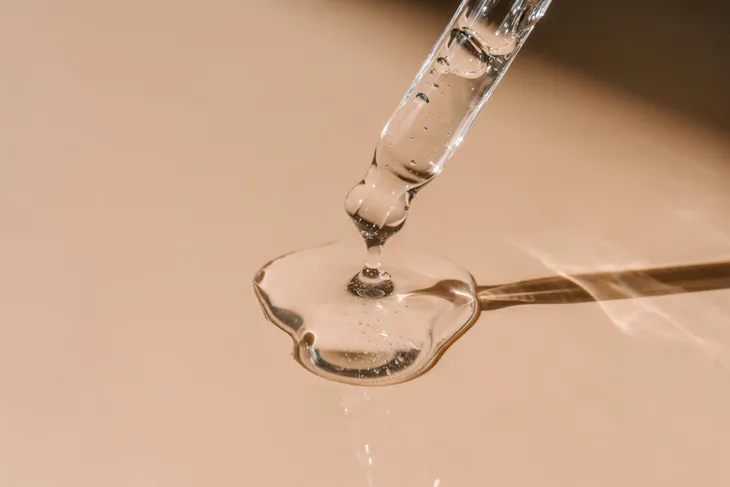 Shutterstock/marevgenna
Shutterstock/marevgennaAdd-On: Exfoliate
Another popular treatment option is exfoliation, which helps to remove dead skin cells and clear out the pores. There are a few different types of exfoliators, but many skin experts recommend opting for a chemical exfoliant rather than a physical exfoliant.
A physical exfoliant uses beads or sugar in the form of a scrub to exfoliate the skin. This can often be quite harsh and cause micro tears in the skin, so it’s typically cautioned against by skincare professionals. A chemical exfoliant, typically an AHA or BHA, works to slough away dead skin cells in a more gentle way.
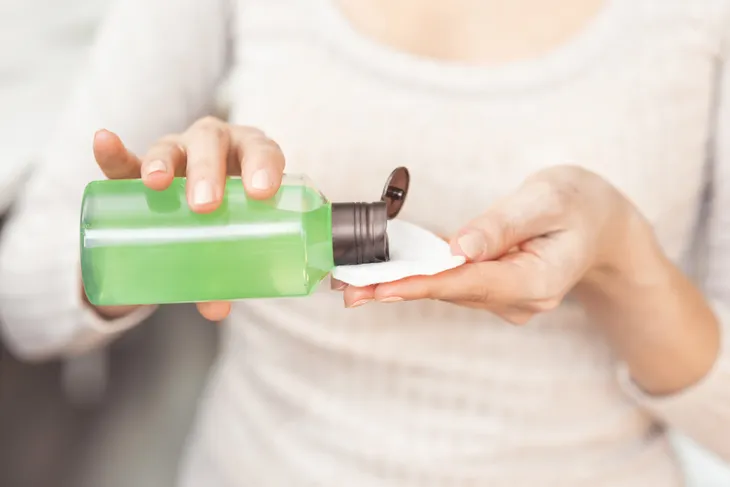 Shutterstock/Mr. Tempter
Shutterstock/Mr. TempterAdd-On: Retinol
If you’re looking to minimize the appearance of lines and wrinkles or smooth skin texture, you may want to consider adding a retinol into your routine. Retinol is a holy grail skincare ingredient and can truly transform the look of your skin. Be cautious that retinol is strong, so it’s important to know exactly how to use it.
Retinol should always be used at night. It tends to make your skin more sensitive to the sun, so applying at night is ideal, and also ensure to apply sunscreen in the morning. Retinol shouldn’t be mixed with AHAs or BHAs, so if you have one of these in your routine, it’s recommended to alternate nights that you use these products.
 Shutterstock/KaryB
Shutterstock/KaryBAdd On: Eye Cream
Eye cream is not an essential when it comes to skincare, but it can be beneficial if your eye area is a concern. You can use regular moisturizer under your eye area, but some eye creams may be more specialized to brighten dark circles or smooth fine lines.
Eye cream is typically only needed in the morning, but you can apply at night as well if you choose to. If eye puffiness is a concern of yours, you could also try to apply your eye cream using a metal roller-boll applicator that’s been stored in the fridge. This cooling action may help to reduce puffiness and help your eyes look bright and awake.
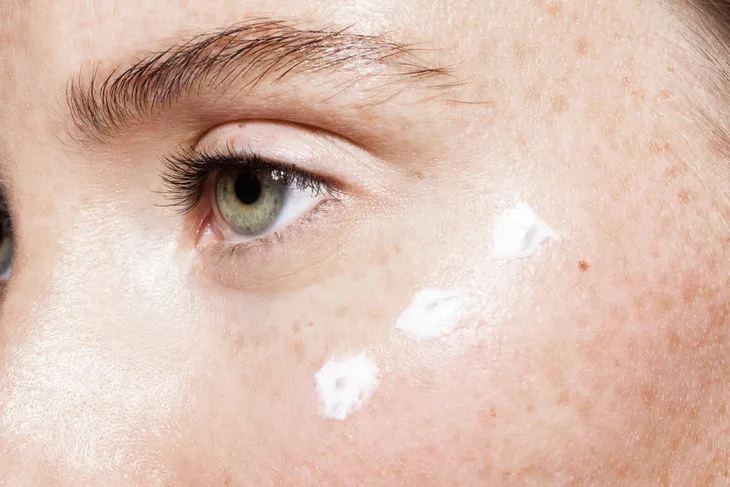 Shutterstock/popcorner
Shutterstock/popcornerAdd On: Acne Treatment
If one of your skin concerns is acne, you could consider adding a treatment into your routine that can target this. Spot treatments are often incorporated into a skincare routine in the evening and can work overnight to shrink spots and heal the skin. Acne treatments come in many forms whether it be a serum, sticker or toner.
If your acne spot treatment contains ingredients like benzoyl peroxide or salicylic acids, it’s important to avoid using retinol on the same night as it may cause irritation. Instead, opt for a soothing, hydrating moisturizer to keep the skin calm.
 Shutterstock/New Africa
Shutterstock/New AfricaConsistency is Key
When it comes to skincare, consistency is key. Don’t be discouraged if you don’t see results right away. For the most noticeable results, you must commit to following your routine for at least six weeks.
Arizona Derm explains that this is the approximate amount of time it takes your skin to complete the cycle of renewing itself with new skin cells. Once this cycle is complete, you will likely begin to notice the changes in your skin due to the products you’ve been using.
 Shutterstock/JLco Julia Amaral
Shutterstock/JLco Julia Amaral


